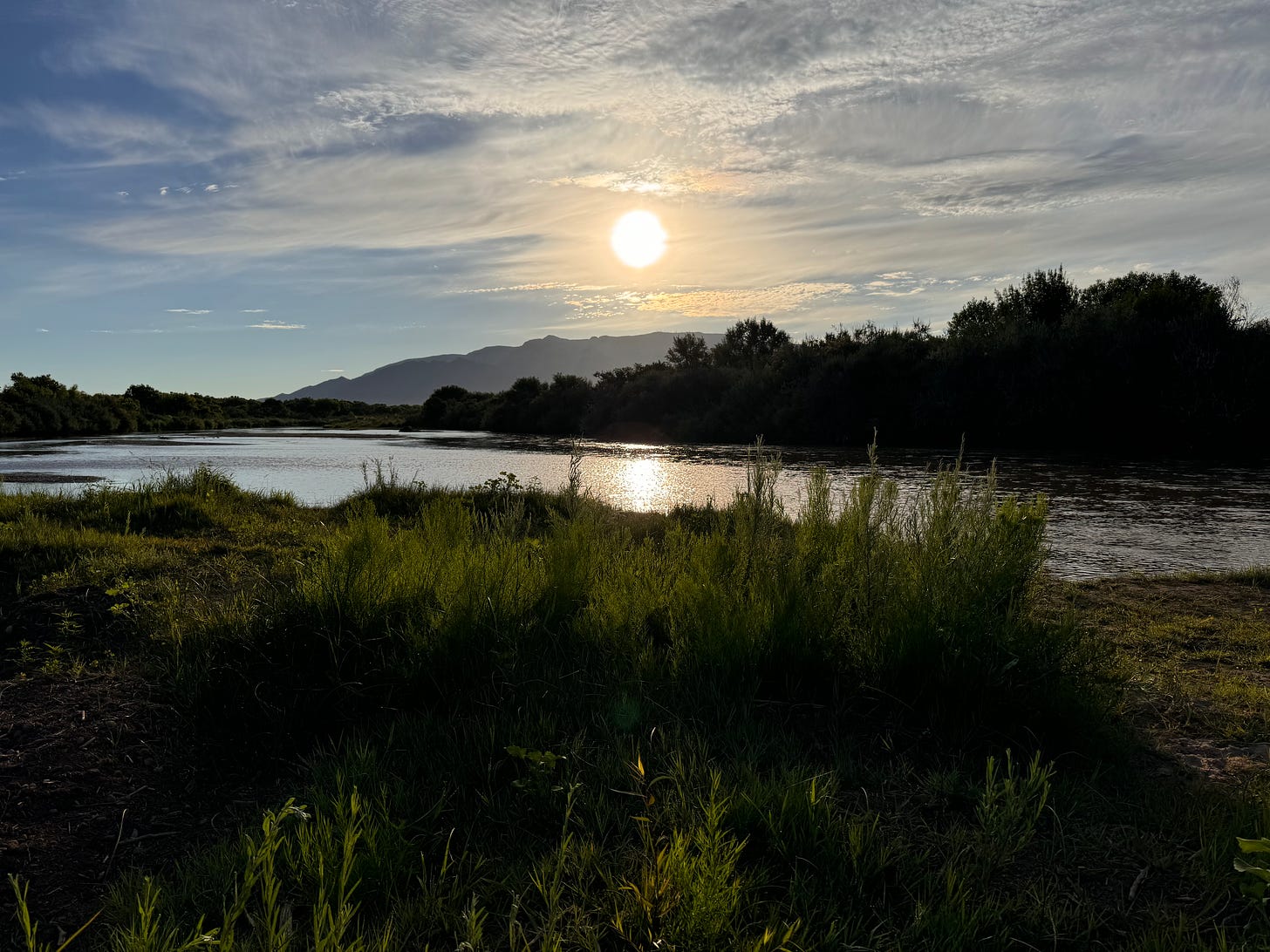Hello, readers —
This week is International Week of the Deaf — which has been recognized by the World Federation of the Deaf every September since 2009.
This past Monday was International Day of Sign Languages, and each day of this week also has its own related theme. If you’re interested, check out on the WFD 2024 page here.
I didn’t start today’s newsletter with the intent of making some grand sweeping statement about the vitality of signed languages or the rights of deaf people around the world, even though there’s always much to say about these topics. Instead, I’ll share a small recent story from the textures of everyday life, which is where we all live most of the time.
I’ve been spending some time back in my hometown in New Mexico, and this past Saturday a longtime hearing friend of mine invited me to join her in volunteering for the local United Way’s “Week of Caring.” The project: helping with some hands-on outdoor work at Wilderwood, an equine therapy and rescue facility in the south Rio Grande valley.
I’m a fan of good old manual labor, especially with animals, and especially outside under a clear blue sky. And better yet, I learned that this horse facility was founded and run by autistic people and autistic self-advocates, for other autistic people and self-advocates. (And for the benefit of the horses, too.) Also a fan of that whole model. Check out their website here if you’re curious.
I was ready to show up, guns out, and lift some heavy things or dig holes or whatever else the farm wanted me to do. What I didn’t expect was to have access to an ASL interpreter for this volunteer event. Honestly, I didn’t even think to ask, mainly because of that thing deaf people encounter all the time: “Oh, we’ve never thought about this before, maybe next time…”
(Can it be worth requesting anyway? Yes. But, as I wrote about earlier this year, it also takes energy.)
What’s more, I knew the day at the horse facility was a volunteer day. I’d signed up at the last minute. I was going with friends. Whatever. For better or worse, I’ve learned not to expect interpreters in these situations.
But the local United Way had thought about it already. They had “language interpretation requests” right on their online sign-up form. My friend, who works for United Way, also helped get the ball rolling. The woman organizing the volunteer day told me in an email that her mom is an ASL interpreter, and that her aunt is deaf. “This is very important to me!” she wrote. Awesome, love to see all of it.
Everything worked out great. The day was a lot of fun, one of the best volunteer experiences I’ve had for a long time. I didn’t need to ask for access. It was just there when I showed up. I was able to learn about the horse facility and its neurodiversity-affirming mission, and then I went and did a lot of painting. A few other volunteers practiced some ASL with me to say hello. Everyone was so kind and friendly. Because there was an interpreter present, I could look up from my paint roller and catch the meandering conversation throughout.
About halfway through the morning, I realized yet again: this is the incidental information that deaf people often miss. The background chatter, the jokes, the witty comments and various conversational topics, the new insights into various local goings-on. And it is important! It is the fruit of a full and rich life! When we have this information, through sign language, we feel wide-open and free.
I’m sharing this little story to highlight what can happen when organizations anticipate and welcome deaf people into their events and everyday work, including the volunteer ones. These measures can be small and straightforward. But they can make the world feel wide-open and free, too.
In my mind, this kind of story shouldn’t be exceptional. As my hearing friend said when we went to lunch after the event, it should be the baseline for more organizations everywhere. Amen to that.
But this kind of story is also part of my inner-idealist vision, whenever I sit and dream about the world I want to live in, a world that includes sign language everywhere. (And especially for things involving horses. Or the outdoors. Or books. You get the gist.)
The world I dream of isn’t always mediated by an interpreter, of course. But interpreting is part of it, as is all manner of cross-cultural and cross-linguistic communication, and the ongoing humility and awareness to improve at such tasks.
Deaf people are already here. Signed languages are already here. It’s always worth saying, and this week especially.
So, for this International Week of the Deaf, I’m wondering — what everyday measures can our local communities take to enable these all-important right to communication? What are some more wow-so-inclusive experiences you’ve seen recently, that could keep becoming the norm?






A life beyond, and with, mediation is so beautiful. I love that. And I'm so thankful that you didn't have to make yourself an accommodated guest but that others made those moves for you. Praise God!